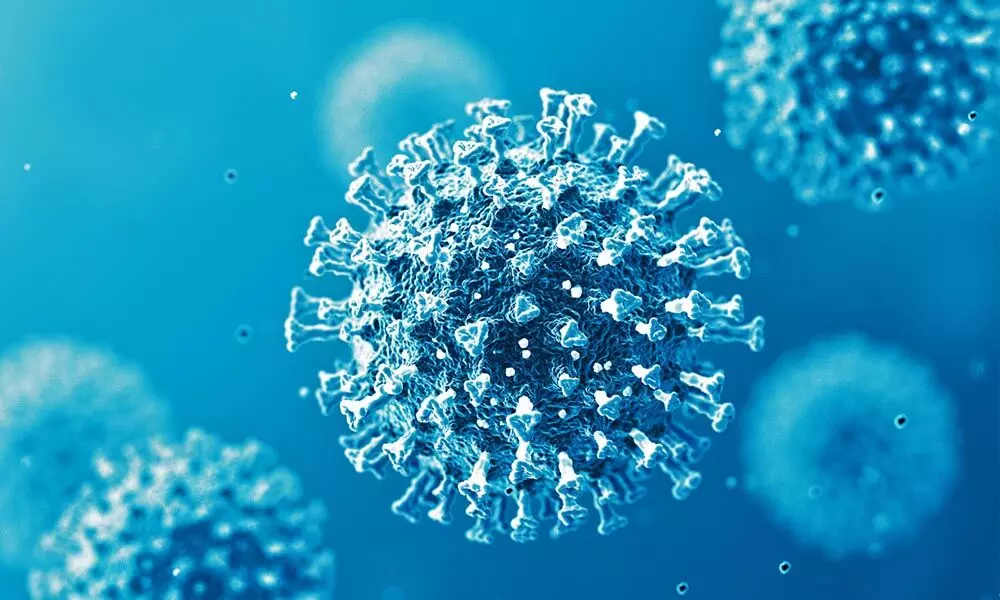People Were Infected With Coronavirus On Purpose By Scientists

For representational purpose
- The outcomes of a first research in which healthy young volunteers were purposefully exposed with an early strain of the pandemic coronavirus were published yesterday in the United Kingdom.
- The research could also help scientists figure out why some people's immune systems are vulnerable to the pandemic coronavirus while others are not.
The outcomes of a first research in which healthy young volunteers were purposefully exposed with an early strain of the pandemic coronavirus were published yesterday in the United Kingdom. None of the patients became critically ill, as expected, and scientists were able to precisely monitor their symptoms and acquire unique insight into how SARS-CoV-2 levels and symptoms change from illness to infection.
The researchers suggest that the success of this initial human challenge trial gives a mechanism for evaluating COVID-19 therapies, vaccinations, and viral variations in the future. The research could also help scientists figure out why some people's immune systems are vulnerable to the pandemic coronavirus while others are not.
34 healthy participants between the ages of 18 and 29 were given nose drops containing a little dose of the virus for the study. According to polymerase chain reaction (PCR) tests, eighteen people, or 53 percent, became infected. The majority of the participants experienced mild to moderate symptoms, but none required hospitalisation or treatment, indicating that the study could be conducted safely, according to the researchers. Rapid antigen testing reliably revealed the presence of virus after the first 1 to 2 days of infection, according to the study.
The findings, which are available on a preprint server, have not yet been peer reviewed but are being considered by a Journal.
David Dowdy, an infectious disease epidemiologist at the Johns Hopkins School of Public Health consider it important finding.
Human challenge trials for many pathogens, including the influenza virus, have long been undertaken, but ethical concerns arise when there are no recognised therapies for a dangerous infection.
In the early period in the pandemic, human challenge studies for SARS-CoV-2 drew interest, but as successful COVID-19 vaccines were developed, various groups abandoned their plans, including a team at the National Institutes of Health (NIH) in the United States, which had drawn up a thorough innovative protocol. A major UK consortium, with more than £33 million in government funding, pressed on.
They started their study in early 2021 with a virus strain that had been circulating in the United Kingdom since July 2020, while the pandemic was still in its early stages. None of the 26 male and eight female volunteers had ever been vaccinated or had ever been infected with SARS-CoV-2. In a high-containment quarantine unit at the Royal Free Hospital in London, volunteers were infected with a low dose of the virus—roughly similar to the quantity of virus in one drop of nasal fluid when they were most infectious. Researchers closely observed their symptoms and ran a battery of tests on them, including fast antigen, PCR, and antibody tests.
Whether it was due to the tiny dose, the volunteers' strong immune systems, or both, the virus failed to infect 16 people who received the nose drops. The findings open the door to researching why and how some people manage to avoid infection because volunteers were all given the same virus in the same way with the same little dose.
The findings also revealed a definite timeline for viral movement within the body. Symptoms began to appear two days after the nose drops were administered, and the virus was discharged in the throat. After around 5 days, the symptoms peaked. That's also when active virus levels peaked in the nose, which had a substantially higher viral load than the throat.
The remaining 16 experienced mild to moderate symptoms such as stuffiness in the nose, sore throat, muscle aches, and fever. Twelve individuals reported scent disturbances a short while later, with nine of them temporarily losing their sense of smell. Six months later, one still had mild odour issues.
Moreover, several experts have pointed out — and the researchers agree that the early virus strain employed in the study is likely to behave differently from more modern variations like Delta and Omicron, which are more transmissible. Separate versions would necessitate different trials, according to Iwasaki. The extent of virus replication, as well as the length of symptoms, may vary. And it's possible that the location [of viral load differs.
Meanwhile, future human challenge research with multiple variants could be used to start testing vaccines designed to be widely protective against numerous strains of SARS-CoV-2 or even other coronaviruses, as per Matthew Memoli, a physician and virologist at the National Institute of Allergy and Infectious Diseases in the United States who devised the NIH challenge experiment.
Next Story
















